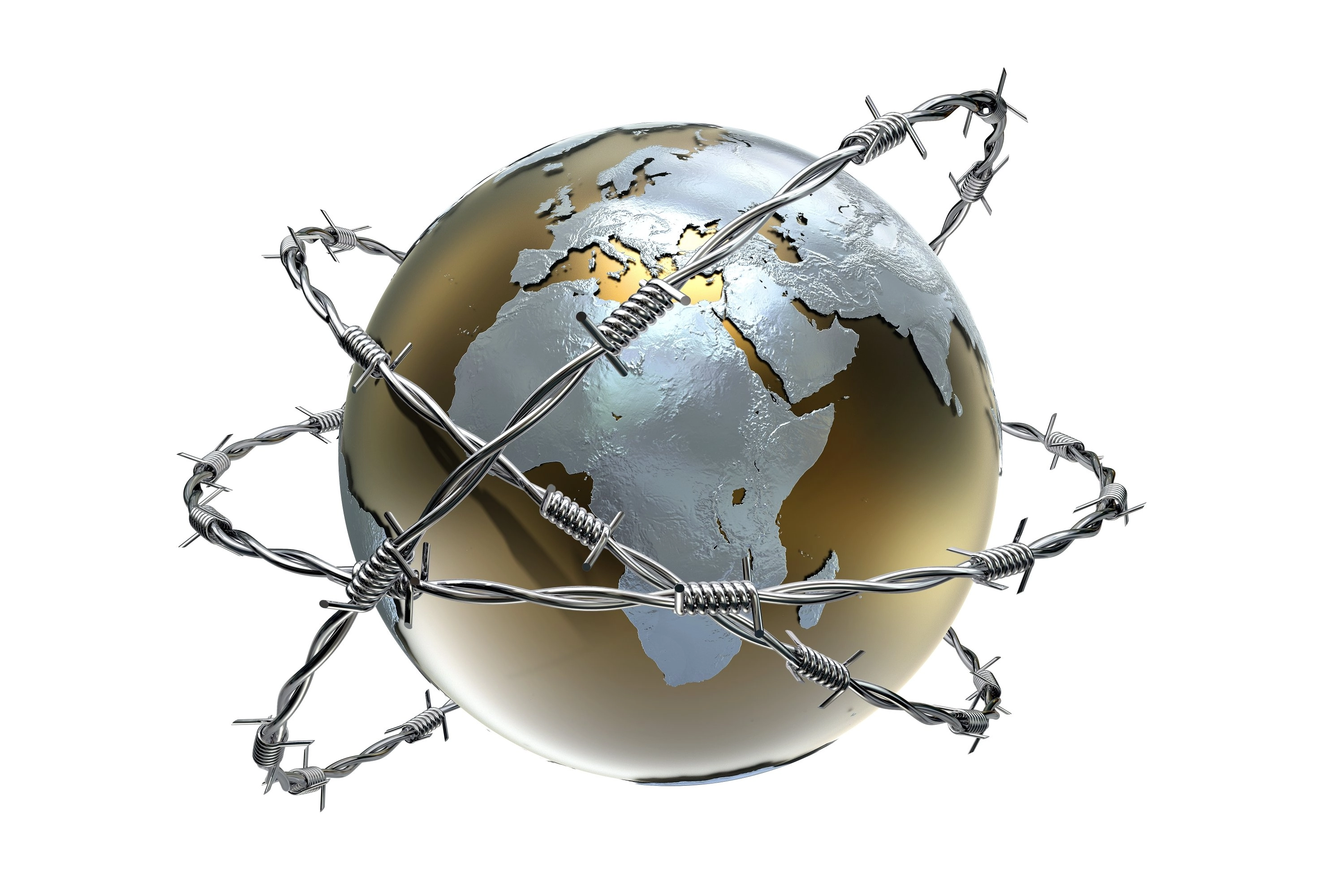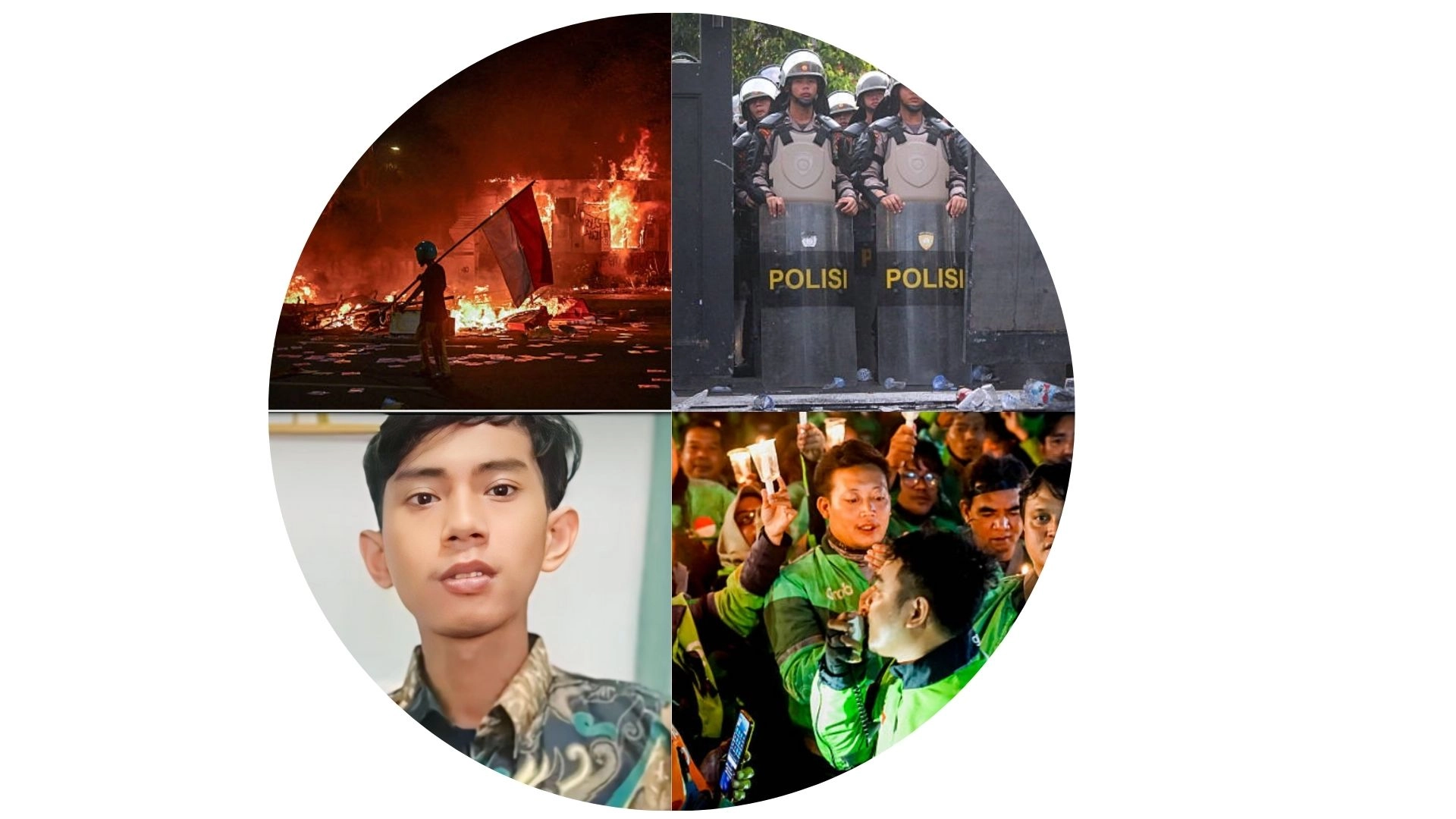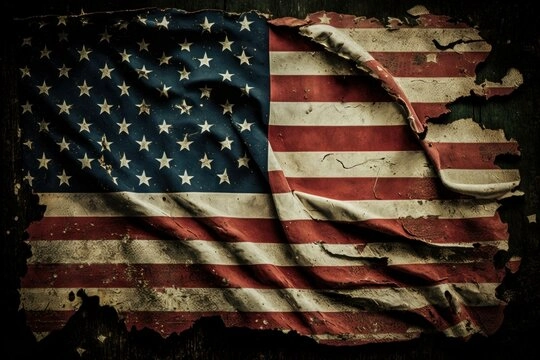Throughout the first months of the second Trump Administration, there has been a lot of ink spilled on how and if the US can remain a liberal democracy. Once dismissed by many in the mainstream as hysterics, the notion that the country may experience a full-fledged slide into illiberalism or authoritarianism no longer seems far fetched at all: a government which fires or threatens any critical voices in the federal bureaucracy, snatches hundreds of immigrants off the street and deports them to nightmarish foreign prisons without due process, and ignores or lies its way out of meaningful judicial oversight is not that of a functional liberal democracy.
While I am admittedly something of a cynic, I would also like to think that the trajectory of democratic decline in the US can be changed. But as in any complex, stratified system of social and material interactions, it can be very difficult to make predictions or recommend intelligent solutions to the problem if we don't properly understand it.
So, in this essay, I would like to go over three factors which I believe have contributed to the decline of democracy in the United States. To caveat: obviously, there are far more than three factors at play here. My intent here is not to provide an exhaustive list of contributors to that decline, but rather to highlight a few logical strands important to understanding the phenomenon, particularly in the US context, which I think deserve greater attention in discourse and policymaking.
The Endless American Security State: From 9/11 to Trump
The first of these connections is the relationship between the unprecedented expansion of the US national security state following 9/11, and the logics and mechanisms —legal, political, and even linguistic— which subsequent governments have used to erode civil liberties and checks on executive power. For many reasons, works chronicling the exact size and activities of the US national security apparatus are rare, with the most comprehensive attempt a decade and a half old at this point. Suffice to say that almost nobody has an exact understanding of all the national security money being spent under the executive branch's purview.
And in recent years, the conceptual linkage of these vast powers to democratic backsliding has become a topic of attention by some writers. In her 2021 volume Subtle Tools: The Dismantling of American Democracy from the War on Terror to Donald Trump, Karen J. Greenberg examines a set of institutional and governance-level changes forged during the GWoT which "More crushingly than any one policy or piece of legislation... have acted as a corrosive blanket smothering the good out of a democracy in turmoil." Similarly, in his book Reign of Terror, journalist Spencer Ackerman draws a straight line from the Pandora's Box of executive powers and cultural changes unleashed by the War on Terror to the election of Trump and his use of those powers against immigrants, minorities, protestors, and any of his other perceived enemies. By 2016, Trump, Ackerman convincingly argues "had learned the foremost lesson of 9/11, that the terrorists were whomever you said they were.”
One reason I think it is important to highlight this particular set of arguments is that unlike a lot of writing on the subject, they do not treat Trump as a singular figure discontinuous with American history. Instead, they frame his presidencies as the culmination of a decades-long trend in US politics— one in which the GWoT's persecution of Muslims and immigrants abroad and at home opened the door for a nativist cultural and political realignment, the dismantling of constitutional safeguards, and a vast expansion of obscure executive power.
Together, these elements have been poisonous for liberal democracy in the US, metastasizing into a present-day political environment where half the country cheers on the illegal rendition of immigrants to megaprisons in El Salvador. In my opinion, if America is to reverse its current trajectory, we its citizens first need to take a long look in the mirror, and come to terms with the fact that Trump's outlook on the world is not an anomaly, but a feature of our deeply troubled body politic. Similarly, if we are to salvage our democracy, Americans will have to truly contend with the enormity of the present-day security state which helped put him there, and support candidates for elected office who will work to reign in its excesses. Are these wild pipe dreams? Obviously. But if we don't start asking some hard questions about how we got here, then the battle is already lost.
Inequality and Stagnation
The second factor I would like to highlight here has been given substantially more attention, but I will include it anyway, since it is critically important and continues to be ignored by much of the Democratic establishment. In short, downward economic pressures which have been developing since the 1970s have now reached an untenable level. Foremost among these is an astronomical increase in wealth inequality. As researchers from the Urban Institute noted in 2022:
"In the past 60 years, America witnessed a massive transfer of wealth from the middle class to the wealthiest families... In 1963, the wealthiest families had 36 times the wealth of families in the middle of the wealth distribution. By 2022, they had 71 times the wealth of families in the middle."
This dynamic, facilitated by years of trickle-down economic policies, has had multiple catastrophic effects. A substantial body of research now links increased wealth inequality with greater financial instability, lower levels of social mobility, more crime, shorter lifespans, and less societal trust, happiness, and cohesion. And while the relationship between inequality and economic growth is still a hotly-debated topic by economists, several prominent studies indicate it can have a dampening effect, especially in high-income economies.
And that's not to mention the enormous influence of the ultra-wealthy on our political life and elections. Elon Musk is an extreme example of this, but billionaires from across the political spectrum have been flooding the US electoral system and media environment with their money for years. After all, as a friend who knows these things put it to me: the only real difference between one billion and a hundred is how many races you can buy. For all these reasons and more, high levels of wealth inequality are fundamentally incompatible with liberal democracy, and, however ironically, its continued growth almost certainly played a role in both of Trump's electoral victories.
Another economic contributor to backsliding in the US is less obvious, but equally important: long-term economic stagnation. In the past 50 years, the economies of developed countries across the world have experienced a slowdown in growth rates, accelerated by the 2008 financial crisis. As economic historian Aaron Benanav wrote in his recent piece for the New York Times:
"In the past, G20 economies regularly grew 2 to 3 percent per year, doubling incomes every 25 to 35 years. Today, many growth rates are 0.5 to 1 percent, meaning incomes now take 70 to 100 years to double— too slow for people to feel progress in their lifetimes. The significance of that change cannot be overstated. Stagnation does not have to be absolute to collapse expectations: When people no longer assume their children's living standards will improve, trust in institutions erodes and discontent rises."
There are many reasons behind this slowdown, with one of the biggest being the global shift away from manufacturing and towards service-based economies. Over time, this movement has stalled productivity growth, as efficiency gains are less tangible and harder to achieve in the service sector than on the assembly line. Couple this with declining birthrates and rapidly aging populations across the developed world, and we're left looking at a global economy where most companies have long since deprioritized reinvestment and R&D, in favor of maximizing short-term financial payouts for shareholders and managers. The result is a "viscous cycle of rising inequality, dampened demand, and low growth." And with those demons come others. Instability, polarization, and backsliding are all natural endpoints for a stagnating country and world.
Unsurprisingly, there are no quick or easy fixes to these issues. Most of the viable solutions involve large-scale redistribution and investment. The difficulty in this endeavor is of course that the wealthiest Americans will continue to use their vast resources to avoid and hamper taxation, as they have done for more than five decades. The biggest bright spot I can point to here is that the political viability of anti-oligarchy and inequality messaging has risen significantly in recent years, shown by the enormous crowds coming out to see politicians like Bernie Sanders and AOC. If Democrats are willing to lean into economic populism and embrace redistributive policies, there may be some reason for hope here. The same can be said for the global slowdown. As Benenav concludes: "There are, however, two plausible ways to respond to stagnation. The first is for countries to spend more, making use of deficits... The second approach is redistribution." The rationale here is pretty straight forward, as deficit spending on public investment stimulates growth, while redistribution ensures that the economic engine of a growing middle class is not snuffed out by the interests of capital.
To be clear, I don't believe that taxation-based redistribution and public investment alone will fix or reverse democratic backsliding in the US. But without them, it's almost certain that the country will continue on its path to oligarchy, becoming a place where all aspects of citizens' lives are dominated by the ultra-wealthy, where electoral politics is meaningless, and where the social contract inherent to liberal democracy breaks down.
Surveillance Capitalism
The final strand on which I would like to touch in this essay is also the hardest to measure and to understand conceptually. I think this is because it is so intangible, working through a series of nearly invisible mechanisms to guide our thoughts and actions on both an individual and collective level. I am referring of course to capitalism, specifically to its most recent permutation in our digital age: surveillance capitalism, or what Shoshana Zuboff has called "the darkening of the digital dream."
Zuboff, a Harvard psychologist and philosopher, laid the groundwork for our current understanding of the phenomenon. She posits surveillance capitalism as a novel form of market-based accumulation, under which raw data on human behavior —now the most valuable commodity on earth— is gathered via algorithmic engagement, processed and refined using Big Data analytics, and sold for immense profits on so-called "behavioral futures markets", to companies and governments eager to predict and influence human behavior.
In some ways, the mechanics of this process resemble the growth of industrial capitalism, with its focus on ever-increasing resource extraction, efficiency, and expansion. Yet, the context of surveillance capitalism is also unprecedented, defined by four pillars of the internet age: the drive toward more and more data extraction and analysis; the development of new contractual forms using computer-monitoring and automation; the desire to personalize and customize the services offered to users of digital platforms; and the use of the technological infrastructure to carry out continual experiments on its users and consumers.
Pioneered by tech giants like Google, Meta, and Amazon, these dynamics all underscore one of Zuboff's most important points: that while industrial capitalism exploited nature for profit, surveillance capitalism exploits human nature. Because the best predictive behavioral data comes from subliminally nudging users towards more profitable outcomes, there is a fundamental incentive to influence and commodify all digital interaction. The end result of this is a set of imperatives "that disregard social norms and nullify the elemental rights associated with individual autonomy that are essential to the very possibility of a democratic society."
The United States is the birthplace of surveillance capitalism, home to the companies which first developed and perfected it. So it should be no surprise that its effects are felt acutely there, in everything from the endless barrage of advertising in citizens' day-to-day lives, to the outlook and policies of top business leaders and government officials. Take for instance the Trump Administration's recent announcement of its plan to create a database of migrant DNA, or acting ICE Director Todd Lyons' statement that he wants deportation to be “like (Amazon) Prime, but with human beings", or perhaps Oracle Co-Founder Larry Ellison's jovial claim that with AI-enabled surveillance, "Citizens will be on their best behavior, because we are constantly recording and reporting everything that's going on."
Ideas like these represent an extreme iteration of surveillance capitalism, where the government and big tech work hand-in-hand to surveil, detain, or deport marginalized groups and for a profit. This is a paradigm antithetical to liberal democracy, one which the US may have already reached. Unfortunately, the only way I see this trajectory changing is if Americans elect representatives who will fight to de-couple corporate and government power, and to impose stringent legal and ethical obligations on tech companies which prevent them from operating this way.
Concluding Thoughts
Consider together the three elements above, and what do we have? A country of immense wealth and power, but also one with a long history of attacking minorities, an immense and un-checkable executive security state, rampant wealth inequality and stagnation, and an economic model increasingly predicated on surveilling, influencing, and detaining those who live there.
While it is not happening overnight, these forces are rapidly unmaking democracy in the US, often in a way which is much harder for voters to understand than, say, Trump supporters storming the capital to try and overturn an election. Cloaked in the rationales of homeland security, individualism, and connectivity, the forces I have discussed here are accepted by many Americans as necessary and inevitable evils, rather than conscious choices by the powerful to exploit a vulnerable system.
And while I have presented them here as discrete elements, there is no question that they often overlap and compliment each other. As Zuboff points out: "Google also benefitted from historical events, when a national security apparatus galvanized by the attacks of 9/11 was inclined to nurture, mimic, shelter, and appropriate surveillance capitalism's emergent capabilities for the sake of total knowledge and its promise of certainty." As alluded to above, this relationship has only grown closer in recent years, as tech moguls like Musk have come to play a central role in both our political and economic realities.
In conclusion, I would just like to say thank you to anyone who has made it this far. While the situation is admittedly bleak at the time of my writing, I truly believe that the necessary changes to reverse our country's backsliding are possible, if we are willing to fight for them and to elect people who will do the same. Organizers and politicians on the populist flank of the Democratic party are already beginning to seize on these issues, and we should support them in doing so, before it is too late.




